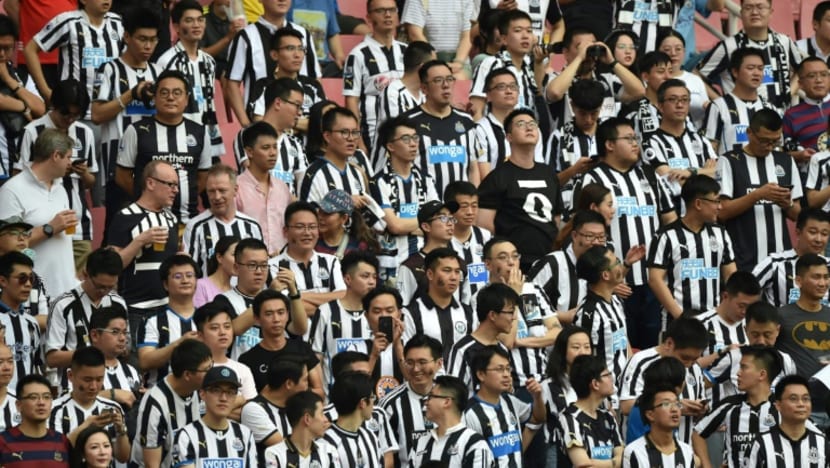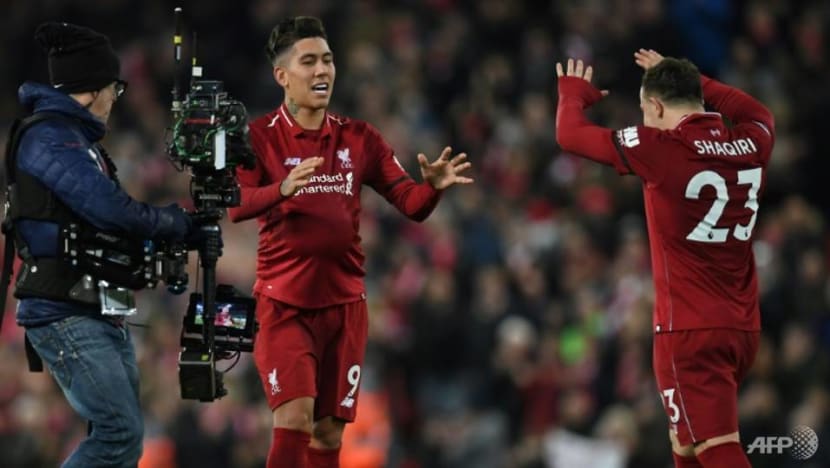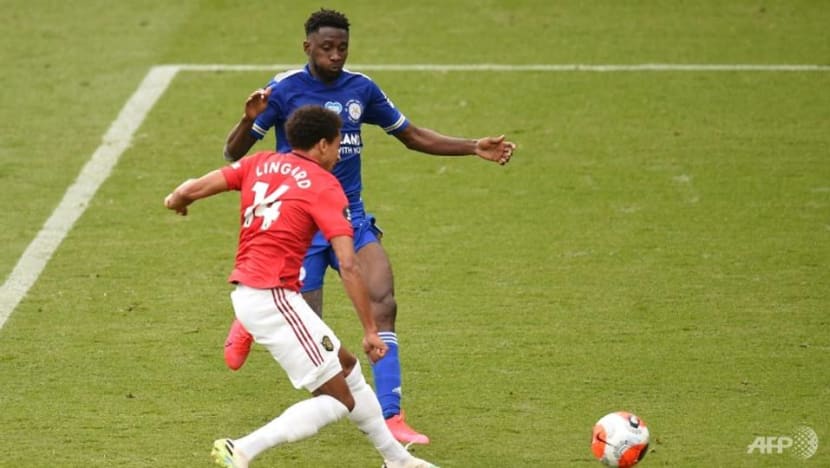commentary Commentary
Commentary: Are EPL broadcasting rights just too expensive for television now?
Terminating its broadcasting contract with PPTV in China appears to have lose-lose prospects for the Premier League and its clubs, says John Duerden.

The Premier League enjoys a big following in China AFP/HECTOR RETAMAL
SINGAPORE: While much of the footballing world focused on Argentine superstar Lionel Messi’s future at Barcelona there was more significant, but perhaps less noticed, news that the English Premier League (EPL) had terminated its broadcasting contract with PPTV in China.
Just days before it kicks off a new season on Sep 12, the world’s most popular league has lost its second most lucrative overseas contract.
PPTV, a streaming service owned by Chinese retail giant Suning, signed a three-year deal worth 564 million pounds (US$746.6 million) in July 2019 that gave it the right to show all 380 games each season.
READ: Commentary: Spanish domination of European football is nearing its end
The agreement had run for one of its three years but, according to reports, the Premier League had been waiting for a payment of 160 million pounds since March. On Sep 3, the decision was made to pull the plug.
"The Premier League confirms that it has today terminated its agreements for Premier League coverage in China with its licensee in that territory," read a brief statement on Thursday.
"The Premier League will not be commenting further on the matter at this stage."
It has been speculated that PPTV wanted a reduction in the fee due to the fact that there were no games broadcast from March to July.
The league was suspended due to the spread of coronavirus and when it returned, games were played in empty stadiums which did not help the viewing experience.
READ: Commentary: Peter Lim’s romance with owning a football club appears in trouble
PPTV also issued a statement. “After many rounds of talks, there remain disagreements on the value of rights between PPTV and the Premier League. Regrettably we have not reached an agreement with the Premier League.”
WHAT IS AT STAKE?
Whatever the reasons for the break, there are clear consequences for the league going forward. The initial fallout will see clubs receive less money at least in the short-term as the league divides TV rights money among the 20 teams in England’s top tier.

This means that each club from Liverpool to Burnley and Aston Villa will face a shortfall of millions of pounds.
The loss of matchday revenue has already hit clubs hard. In May, Manchester United said that it had lost 28 million pounds and expected that figure to rise.
"Looking further ahead, given the revised timing for domestic and UEFA competitions, we will not be participating in our typical summer tour activities this year,” Cliff Baty, United’s chief financial officer, told local media.
"Retail revenues will be impacted due to the closure of our Megastore. Broadcast revenues will be dependent on the timing of matches played in the fourth quarter. Matchday revenues will be significantly impacted by the closure of Old Trafford to fans."
The lack of matchday revenue has been felt across all the big European leagues meaning that the Premier League’s ability to pay some of the highest transfer fees and salaries should stay relatively unchanged.
Yet the EPL attracts more broadcasting revenue than any of its competitors. Before the PPTV news, the league was predicted to attract 2.4 billion euros (US$2.84 billion) last season, 1 billion euros more than Germany's Bundesliga, and is a huge part of its success. Problems in that area could become serious.
READ: Commentary: Messi and Ronaldo are the best ever. We will not see any more like them
Broadcasting makes up a significant proportion of Manchester United’s revenue. In 2019, it accounted for US$306 million of the club’s income of US$796 million.
The proportion is higher for most other clubs that are unable to match Manchester’s commercial and matchday income. In 2019, broadcast revenues accounted for 115 million pounds of Burnley’s total 138 million pounds income.
Such figures enable even smaller Premier League teams to attract some of the world’s top talent. Accountancy firm Deloitte reported earlier this year that of the top 30 European clubs in terms of revenue, 11 were English with broadcast revenue forming a large portion of this.
WHY DO OVERSEAS MARKETS MATTER?
Overseas income has become increasingly important. In 2019, the amount paid by broadcasters to the league reached US$12 billion for the following three seasons.

This was a rise of 8 percent that came from an increase in the amount sold to overseas markets as domestic income fell.
With overseas markets becoming more crucial, losing China is a blow to the league in the short and long-term. Putting it right will not be easy especially given recent geopolitical tensions between the United Kingdom and China.
"What we now have is a much more fractious relationship between London and Beijing and whatever negotiations that take place are going to be set in that context” Simon Chadwick, professor of Eurasian sport at Emlyon Business School, told European media.
“It really does raise questions about how much a new deal will be worth, but also how long it will be before we see a deal."
Even if a deal is made, it is unlikely that the amount will match the last one.
The deal with PPTV was worth 12 times more than the previous deal in China and there have been reports in the country suggesting that PPTV had not had the desired results in terms of new subscribers and revenue from showing English football.
Yet if the league signs a new deal for a smaller amount then it could lead to other broadcasters around the world looking to reduce the amounts they pay in future negotiations resulting in a viscous circle of declining broadcast revenues for EPL clubs.
READ: Commentary: Don't expect football clubs to splash big bucks this transfer window
Indeed, it has been reported that PPTV itself, whose parent company Suning is rumoured to be struggling financially, wanted a reduction after learning that the Premier League clubs had agreed to give domestic broadcaster Sky a rebate of 170 million pounds due to the absence of football played earlier this year.
The Premier League is the world’s most popular league and needs to be shown in the world’s most populous country. But if it holds out for too much money then it may have to wait a long time to reach fans in China.
If it drives too easy a bargain, there will be repercussions elsewhere. This is a game that the Premier League needs to approach carefully if it is to secure the right result.
John Duerden has lived in Asia for 20 years and covers the region’s sporting scene. He is the author of three books including Lions & Tigers - The History of Football in Singapore and Malaysia (2017).
















